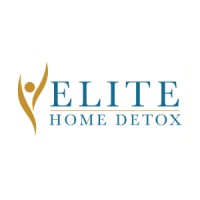America’s Soberest States: The 2025 Ranking That May Surprise You
A new survey highlights where Americans drink alone the least and explores the cultural and social factors behind sobriety trends.
LOS ANGELES, CA, UNITED STATES, July 31, 2025 /EINPresswire.com/ -- A nationwide study commissioned by Elite Home Detox has revealed the ten U.S. states where solitary drinking is least common among residents. Participants were asked how often they drink alone. The findings, some of which may come as a surprise, shed light on regional drinking behaviors and offer timely insight into the growing trend of solitary alcohol use across the country.Vermont Tops the List as America’s Soberest State
Vermont reports an exceptionally low average of just 0.13 solitary drinking occasions per month, making it the state with the fewest instances of people drinking alone. Experts at the State of Vermont Department of Health point to Vermont’s strong community ties¹, abundant outdoor recreation², and proactive mental health initiatives² as factors that may reduce emotional isolation and discourage solitary alcohol use.
Hawaii Shows: When Life Is Balanced, Alcohol Isn’t a Coping Tool
Hawaii, often associated with laid-back beach culture and a vibrant tourism economy, unexpectedly ranks third for drinking the least by themselves, with residents reporting just 0.50 solitary drinking instances per month. While not traditionally counted among America’s "soberest" states, Hawaii’s strong sense of ʻohana (family), social cohesion, and natural beauty appear to offer meaningful alternatives to drinking alone—defying national trends⁴⁵.
This aligns with Hawaii’s consistently high performance in national wellness indexes: it has regularly been named one of the happiest and healthiest states in the U.S. According to researchers, cultural identity, community support, and connection to land (ʻāina) can help reduce risk behaviors—particularly among youth⁵.
Given that solitary drinking is often linked to emotional stress, loneliness, or disconnection, Hawaii’s showing offers a valuable case study: where well-being is embedded in daily life, alcohol misuse may become less necessary as a coping mechanism.
Cultural and Environmental Influences
Many of the soberest states are well known for their close-knit communities, cultural or religious norms that discourage excessive alcohol use, and access to outdoor activities that promote healthy lifestyles. For example, Utah’s low solitary drinking rate of 0.62 per month is influenced by a large Mormon population, where abstaining from alcohol is common. This faith-based framework creates a broader cultural environment in which drinking is less socially normalized, especially in isolation.
Likewise, New Hampshire combines picturesque natural landscapes with a strong sense of civic participation and community. Research suggests that environments which promote physical activity and social engagement—such as hiking, skiing, and communal events—can play a protective role against substance misuse by reducing emotional isolation and increasing overall well-being.
Drinking Alone Isn’t Just a Habit—It’s a Warning Sign
Solitary drinking is more than just a habit—it’s often a signal of underlying emotional distress, such as stress, anxiety, or loneliness. Nationally, over 25% of Americans report drinking to manage emotional challenges, underscoring the need for greater awareness and support.
“Low rates of solitary drinking often reflect the strength of community support and the availability of healthy coping mechanisms,” says Dr. Abe Malkin, Founder of Elite Home Detox and member of the American Society of Addiction Medicine.
“When people feel connected and supported, they’re less likely to turn to alcohol in isolation. It’s encouraging that some states report such low rates of solitary drinking—but we must not overlook the ones with higher numbers. These findings highlight the urgent need to invest in social and mental health resources across the country.”
Full survey findings: https://elitehomedetox.com/solitary-drinking-hidden-crisis
Sources:
¹ State of Vermont Department of Health. Community-Based Prevention Programs. Accessed July 2025. Available at: https://www.healthvermont.gov
² Rocky Mountain Health & Safety Collaborative. 2024 Impact Report: The Mental Health Benefits of Outdoor Engagement. Published April 2024. Available at: https://rmhsccn.org/client_media/files/Digital_CCN_ImpactReport_2024.pdf
³ StateRegsToday. Alcohol Awareness and Education Programs in Hawaii. Updated February 2025. Available at: https://www.stateregstoday.com/health/alcohol/alcohol-awareness-and-education-programs-in-hawaii
⁴ Kaholokula, J. K., et al. “Culturally Based Substance Abuse Prevention for Native Hawaiian Youth.” Journal of Ethnicity in Substance Abuse, vol. 8, no. 3, 2009, pp. 241–258. Available at: https://www.ncbi.nlm.nih.gov/pmc/articles/PMC2845475
⁵ National Institute on Drug Abuse. Social Isolation, Stress, and Substance Use: The Science Behind the Link. Published July 2023. Available at: https://www.drugabuse.gov
About Elite Home Detox: Elite Home Detox is a premier provider of in-home addiction recovery and wellness services across the United States. Specializing in medically supervised detox, personalized treatment plans, and holistic support, we bring safe, confidential care directly to the comfort of your home. Our team of licensed professionals is dedicated to making recovery accessible, private, and effective—whether you need assistance with alcohol, opioids, or other substances. To learn more about our services, visit www.elitehomedetox.com.
Susanna Hartmans
ABCD Agency UG (haftungsbeschränkt)
email us here
Visit us on social media:
LinkedIn
Instagram
Facebook
Legal Disclaimer:
EIN Presswire provides this news content "as is" without warranty of any kind. We do not accept any responsibility or liability for the accuracy, content, images, videos, licenses, completeness, legality, or reliability of the information contained in this article. If you have any complaints or copyright issues related to this article, kindly contact the author above.


